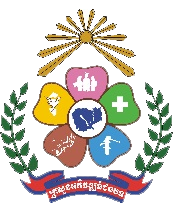PROJECT RATIONALE
Failure to achieve water supply and sanitation commitments will result in many anticipated health issues especially water and sanitation related diseases which have dominantly threatened many lives of rural Cambodians. In most cases, women and children are more vulnerable to the diseases and extreme climatic events than men. A long this line, climate variability and change, as is projected by the Intergovernmental Panel on CC (IPCC), will increasingly impact on water and agricultural sectors in Asia. An increase of extreme climatic events causing flood and drought is projected (with high confident) for this continent. The increase of extreme climatic events will undermine water quality especially biological contamination in flood prone areas, and water scarcity in drought prone regions, and will threaten existing infrastructure, adding pressure to the current slow progress toward meeting the set target. It is to note that due to limited rural water supply and sanitation infrastructure, wells are predominantly defined as safer source of rural water supply.
Selection and provision of rural water supply and sanitation technologies would be more efficient if the knowledge and information about climate variability and change and its associated impacts, especially local ones is well conveyed to decision-makers and planners. Individual rural water supply and sanitation systems have pros and cons and works best in different climatic conditions. Having acknowledged that CC highly impacts on Cambodian development as a whole and rural water supply and sanitation in particular; CC adaptation strategic plans are being developed by a number of ministries including MRD. Additionally, mainstreaming CC considerations into national development plans such as the National Strategic Development Plan (NSDP) has also become a priority focus of the RGC as a whole.
Appropriate institutional capacities, therefore are required to effectively implement rural water supply and sanitation policy as well as its sectoral CC adaptation strategy. The Institute, through experiences in many countries in the world, further highlights the important roles of local institutions (sub-national level) in addressing climate vulnerabilities and risks. It is even more important for Cambodia to build sub-national capacities because the planning process is basically a bottom-up approach and even more so with the commitment to enforce a complete decentralization through an implementation of the organic laws. Therefore, this capacity building project in all means assists the MRD in achieving the targets, shifting towards a more climate-informed adaptation planning. The project also supports the sub-national level MRD in implementing their increasing mandates once the organic laws are fully enforced.
Implemented By:


Supported by:
Cambodia Climate Change Alliance

